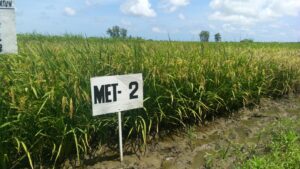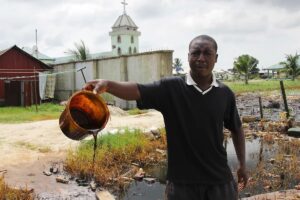- Agribusiness could drive Africa’s economic prosperity
- Dawood Al Shezawi: Why AIM Congress 2024 is the epicenter of global economic and cultural dialogues
- d.light’s 600,000 cookstoves project verified as top source of quality carbon credits
- Artificial intelligence (AI) could create a turning point for financial inclusion in Africa
- AIM Congress 2024: Catalysing global investments with awards
- Kenya’s economic resurgence in 2024
- The most stressful cities to live in 2024 exposed
- Tech ventures can now apply for the Africa Tech Summit London Investment Showcase
Opinion
- Artificial intelligence in Africa can potentially propel the fintech industry into a new era of financial inclusion.
- AI tools can analyse data from client discussions, producing legal documents in simple language and at a fraction of what it would typically take to draft a contract.
- Banks, for example, can make their services more affordable to their customers by rolling out AI-powered chatbots to handle routine queries while sparing them from having to travel to a bank branch.
It’s difficult to imagine a time before the widespread adoption of mobile technology in Africa – particularly where financial services are concerned. For millions of unbanked people, transactions were limited to cash, postal services or even the barter system.
Now, in much the same way as mobile payments completely disrupted the status quo, AI has the potential to propel the fintech industry into a new era of financial inclusion. And perhaps most exciting …
- One of the most important ways a fintech can listen to its customers is to gauge how they engage with its products.
- Having a deep understanding of customer needs results in innovative solutions.
All around the world businesses are pulling out the stops to achieve growth in what can best be described as challenging economic conditions. Africa is no exception. The continent has long been recognised for its immense potential, and as such businesses across sectors are investing heavily into the continent.
Advancements in technology make serving the unbanked and underserved populations in Africa more viable than ever before. However, that does not mean growth comes easily. It is a hyper competitive and complex environment where genuinely understanding your customer is key to growth.
Even with this textbook understanding, there is a strong urge to take the “build it and they will come” approach because we can get caught up …
- Namibia is fortunate to benefit from the experiences of other oil- and gas-producing states.
- The country’s oil and gas sector is still looking forward to reaching the production phase, but S&P Global analysts don’t anticipate Namibia’s first oil production will come until 2029.
- Further, the country’s first gas-to-power project is scheduled to begin in 2027.
Namibia’s energy sector is still looking forward to reaching the production phase — S&P Global analysts don’t anticipate Namibia’s first oil to come until 2029, and the country’s first gas-to-power project is scheduled to begin in 2027.
Ohio State Team Jersey
ohio state jersey
Ohio State Team Jersey
asu jersey
ohio state jersey
Iowa State Football Uniforms
detroit lions jersey
micah parsons jersey
micah parsons jersey
Iowa State Football Uniforms
fsu football jersey
OSU Jerseys
custom football jerseys
asu jersey
Before Namibia achieves these hotly anticipated milestones, Namibian lawmakers can implement thoughtful, …
South Africa’s poultry sector is currently undergoing serious challenges. The ongoing load shedding and power disruptions have put tremendous pressure and additional costs on the industry, which makes producing poultry products extremely expensive. One company (Astral Foods) has spent an additional $47.56 million (R919 million) due to load shedding alone. This has had a significant impact on the profitability and sustainability of the company. To make matters worse – South Africa’s poultry sector has been hit with a significant avian influenza epidemic.…
- Contrary to the general belief that Nigeria is the giant of Africa, incessant violence and armed conflicts have drastically reduced the influence of Nigeria on the continent.
- Despite its huge resources, Nigeria still suffers from poverty, inequality, unemployment, insecurity, corruption, high fuel and commodity prices, and other political and economic hardships.
- The biggest threats to Nigeria’s stability include bad governance, electoral mal-practices, corruption, economic hardship, inflation, terrorism, kidnapping, and ethnic divisions.
It is one of Africa’s behemoths. A country with vast resources and immense complexities. Boasting the largest economy of all states in Africa, Nigeria has long been considered one of the jewels in the crown of this continent. But, the country’s future and that of its more than 210 million people is looking bleak, which holds only dire consequences for the Economic Community of West African States (ECOWAS).
Nigeria’s high rate of inflation
“Current daily developments in political, economic, …
- The Cortex Hub and Angel Fair Africa have reached the milestone of a decade of nurturing innovation, fostering entrepreneurship, and connecting African startups with investors.
- The initiative aimed to create an innovation hub in the Eastern Cape to unlock the latent potential of the region’s emerging talent pool and drive technological innovation and break down barriers hindering growth.
- It was initiated by the author, who had previously worked in the ICT field during the apartheid era and had a personal interest in driving technological advancement and economic empowerment in the region.
In a landscape defined by the ebb and flow of African entrepreneurship, milestones are more than mere time markers; they stand as beacons of progress. This year, we gather to celebrate an extraordinary achievement as both The Cortex Hub and Angel Fair Africa reach the impressive milestone of a decade. A decade of unwavering dedication to nurturing innovation, fostering …
Despite the worldwide call commanding the global business community to divest from fossil fuels and shrink their carbon footprints in the name of net zero, international oil companies (IOCs) still recognize Africa as their next frontier.…
- A resilient health system is one that can deliver high-quality care for its patients under pressure – which could be economic, social, or environmental.
- Achieving this requires us to proactively strive to keep people healthy, rather than waiting until they fall ill to intervene.
- Without equity, our efforts to build a greener, healthier Africa will fall short.
Climate change is no longer a theoretical challenge to be solved by future generations; it is a reality that communities across Africa are already experiencing in the form of higher temperatures, droughts, changing rainfall patterns.
Despite contributing the least to global warming and having the lowest greenhouse gas emissions, Africans face exponential collateral damage from climate change, posing systemic risks to its water and food systems, increasing the risk of disease and straining already fragile health systems.
Nexus of climate and health
As part of a series of regional meetings in the run …
- For businesses, adopting circular economy principles means less cost in hauling waste to dump sites.
- Circular economy means gaining new sources of revenue from selling by-products in manufacturing and using less energy.
- While circular economy concepts make intuitive sense to most investors, the opportunities have yet to be fully explored.
According to a new academic study published in the Frontiers in Sustainability, there are five areas of opportunities where businesses and investors can uncover wealth-building opportunities while improving the environment.
This study “Toward a preliminary research agenda for circular economy adoption in Africa”, by lead author Elke Nijman-Ross, reviewed 275 publications and analyzed the survey results of 38 circular economy experts to uncover the consensus for identified opportunities for further exploration of the circular economy in African countries including Kenya, Rwanda, Tanzania, Ethiopia, Uganda, DRC and Mozambique in East Africa.
The concept of a circular economy, described by …


























